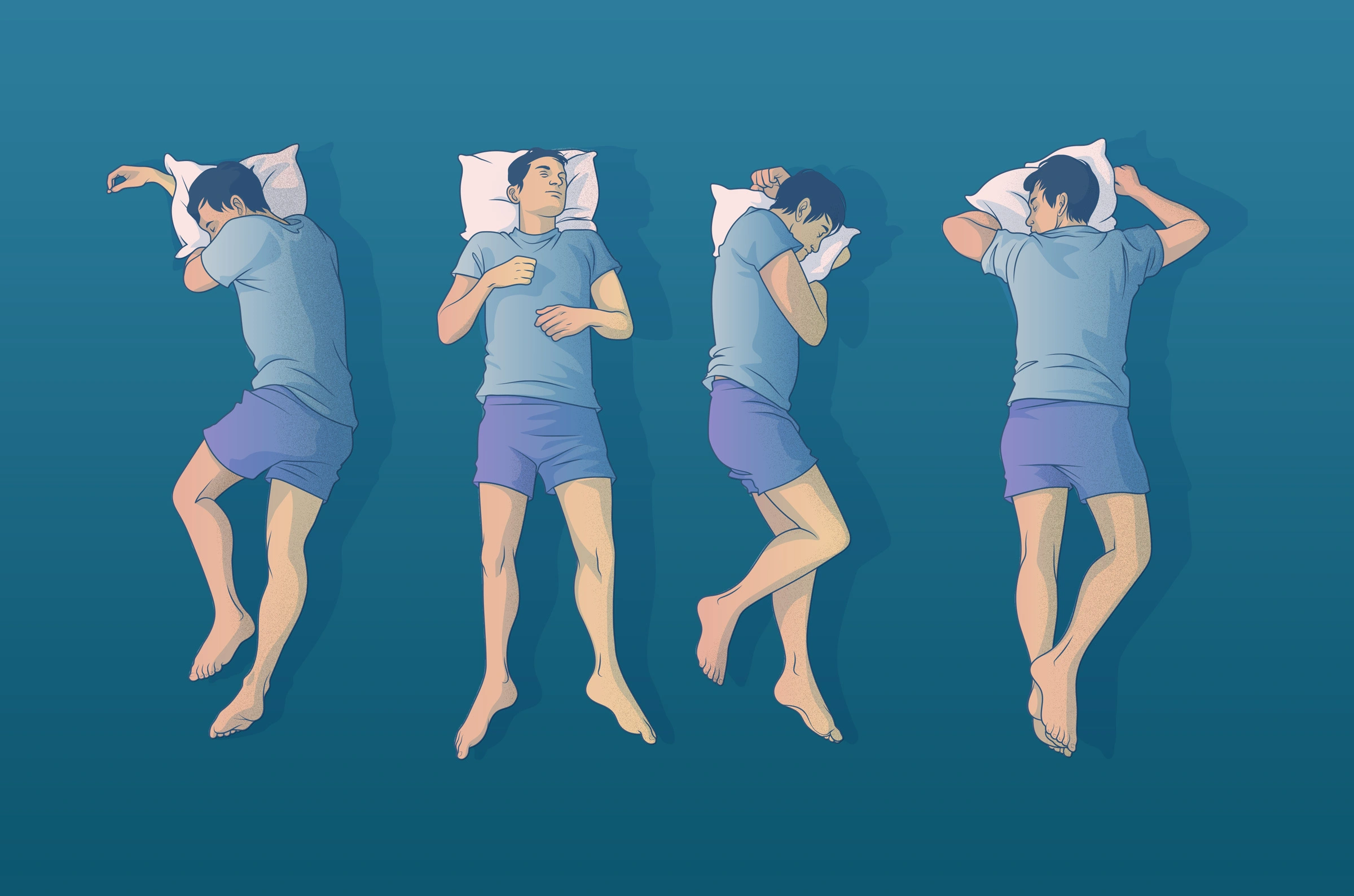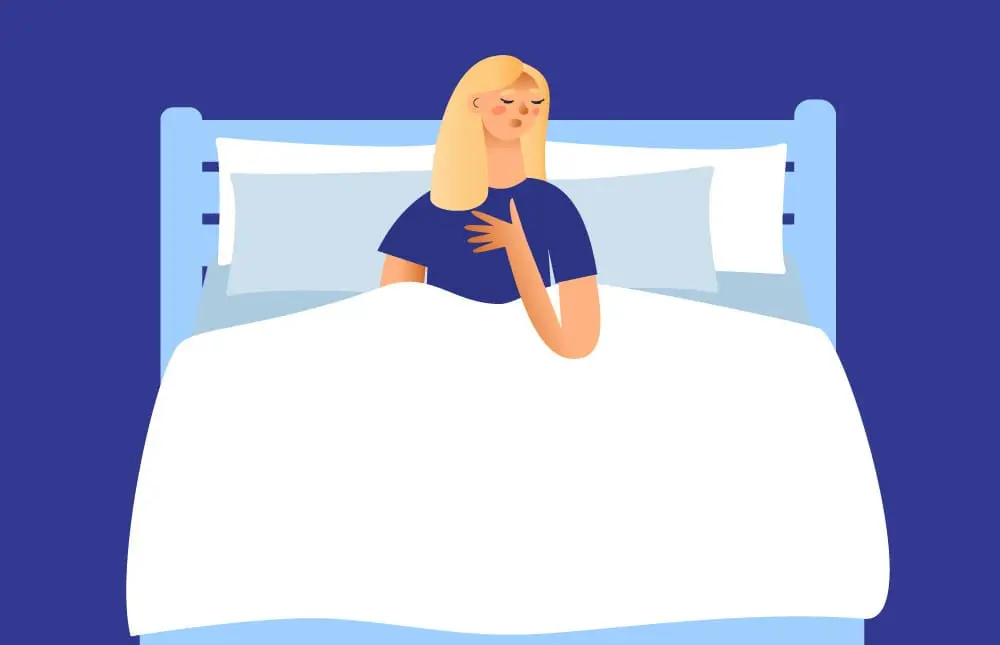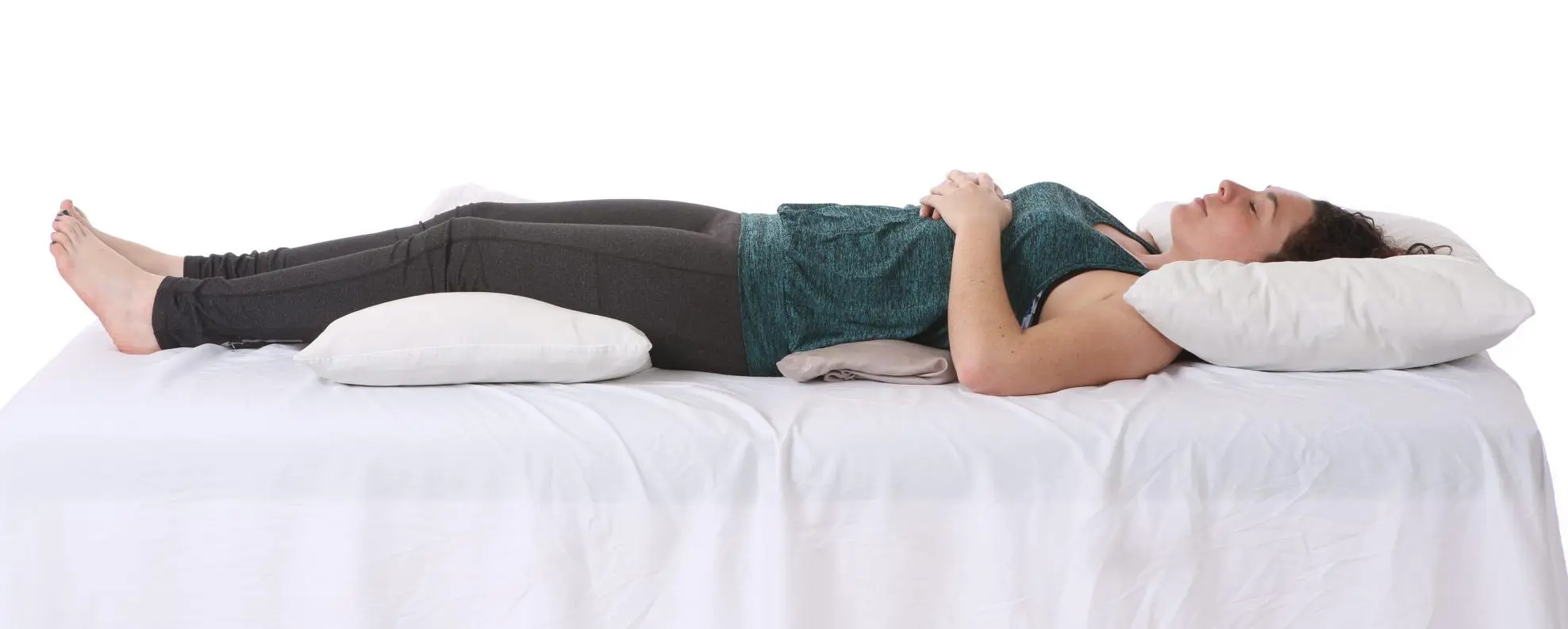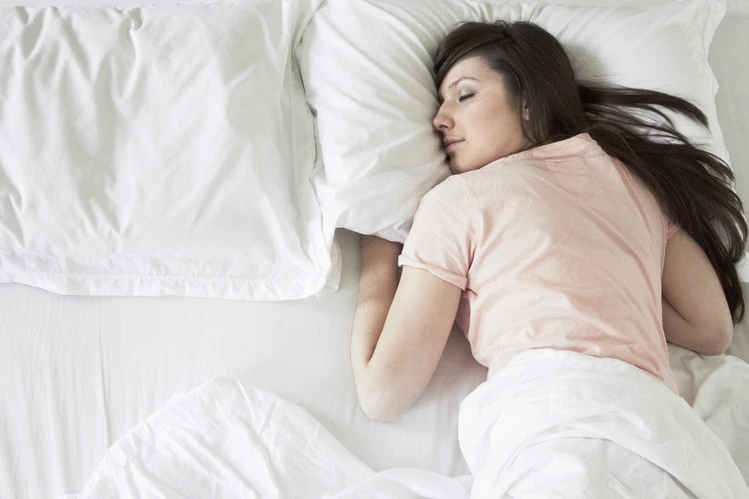It may surprise you to learn how important your sleeping position is. To determine the ideal sleep position that fits your personal needs and preferences, try keeping a sleep journal for a couple of weeks. By monitoring any changes in your sleeping patterns and the quality of your sleep, you can better understand what works for you and what doesn't.
In this article we will help you determine the advantages and disadvantages of different sleeping positions, help you better understand the differences between them, and let you know when is it time to change your sleeping position.
What is the Best Sleeping Position?
While there's no single "best" sleeping position for everyone, side sleeping often comes closest for most individuals.
When you sleep on your back, your tongue can fall back and block your airway, leading to snoring and even sleep apnea. Side sleeping keeps your tongue in a more natural position, allowing for easier breathing and reducing the risk of these issues.
Finding your ideal sleeping position on its own is not enough, you should make sure your pillow and your mattress are appropriate for your sleeping position.
For side sleepers, achieving a neutral spine position is crucial to avoid neck and back discomfort. Which can be achieved by having the right height pillow.

How Your Sleeping Position Impacts Your Health
Back Pain and Neck Pain:
The relationship between back pain and sleep position is complex. While some people find relief from low back pain by sleeping on their backs, others experience increased neck discomfort due to poor alignment. If you struggle with back pain, experiment with different positions, mattresses, and pillows to find what minimizes your discomfort. A firmer mattress may also be beneficial.
Sleep Apnea and Snoring:
Obstructive sleep apnea occurs when your airway partially or completely collapses during sleep, leading to breathing pauses and snoring. Sleeping on your back worsens these symptoms. For most people, side sleeping or stomach sleeping helps keep airways open, reducing snoring and mild to moderate sleep apnea.
Heartburn and Acid Reflux:
Sleeping on your right side might exacerbate heartburn problems. This is valid for both those with gastroesophageal reflux disease (GERD) and those experiencing heartburn from other causes, such as pregnancy. To relieve the burn, turn to your left side. Additionally, elevating the head of your bed by 6-8 inches using pillows can further lessen discomfort.

Side Sleeping
The commonly reported sleeping posture is side sleeping, which involves lying on your side. Though it may not be the finest sleeping position due to several drawbacks, this is one of the healthier ones overall.
Sleeping on your side has been associated with improved brain waste disposal, which may reduce your chance of developing brain-related illnesses (like Alzheimer's). Your airways are less constrained when you sleep on your side, which improves breathing during the night. Also, investing in a mattress for side sleepers can help prevent snoring problems and potentially alleviate sleep apnea.

Back Sleeping
Sleeping on your back increases your chances of developing sleep apnea issues. This posture might make it easier for your jaw to hang open and for your tongue to descend within your mouth, which increases the risk of snoring.
Sleeping on your back might be a wonderful way to relieve acne-related issues. Your face comes into touch with a pillow whether you sleep on your side or stomach, and if the pillowcase isn't clean, germs can cause pimples. By avoiding touch with your pillowcase when you sleep on your back, you can reduce the likelihood of wrinkles. Hunting for an appropriate mattress for back sleeping is also important to ensure a good night sleep.

Stomach Sleeping
Sleeping on your stomach may be quite taxing on your body. The pressure this sleeping posture places on your spine might cause neck and back discomfort, this is why you should invest in a mattress that suits stomach sleeping. Sleeping in this posture can cause your body to be out of alignment, which might cause pain when you wake up.
However, some research suggests that sleeping on your stomach can be quite helpful if you have snoring or sleep apnea, which is a condition in which you periodically stop breathing while you sleep. Because sleeping in this position keeps your airways more open than sleeping on your back, it can help you breathe easier.

Ideal sleeping position for you
In the below table, we let you know which sleeping position is most suitable under certain circumstances. The three primary sleeping positions are outlined below:
| Concern | Positions to try | Additional tips |
|---|---|---|
| Low Back Pain | Side, Back | Try sandwiching a pillow between your knees when you sleep on your side to improve the alignment of your spine. |
| Neck Pain | Back, Side | If you sleep on your side, use a thicker pillow; if you sleep on your back, use a thinner pillow. |
| Sleep Apnea, Snoring | Side, Stomach | Try placing a pillow behind your pelvis, and think about placing a narrower cushion under your head if you sleep on your stomach. |
| Acid Reflux | Side | It's possible that sleeping on your left side will benefit you more than sleeping on your right. |
| Pregnancy | Side | Try utilizing a wedge cushion or body pillow to enhance your comfort. |
| Sinus Congestion | Back | Use an additional cushion to elevate your head to aid with drainage. |
| Hip or Knee Pain | Back | To relieve strain on your spine, try putting a cushion beneath your knees. |
When to Think About Changing Your Sleep Position
If your current sleep position regularly leaves you feeling sore, achy, or uncomfortable, it's worth exploring a change. Back sleeping can be a good alternative for reducing neck, shoulder, and back pain, but it's not ideal in all cases. If you have persistent heartburn, snoring, or sleep apnea. Back sleeping can worsen these conditions.
Some health conditions benefit from specific sleep positions. For example, side sleeping can help alleviate snoring and sleep apnea, while left-side sleeping may ease heartburn and acid reflux.
FAQs
Is it better to sleep on your side or back?
The ideal sleeping posture supports a normal spine alignment from your hips to your head. What it means for you depends on your comfort level and unique health circumstances.
That being said, some postures are thought to be healthier than others. In particular, it is thought to be better to sleep on your back or side than on your stomach. It's simpler to maintain your spine balanced and supported in any of these sleeping positions, which releases pressure from the spine and allows your muscles to unwind and heal.
What sleeping position is best for breathing?
Side sleeping is often recommended as the best posture for breathing difficulties such as snoring and pauses in breathing caused by obstructive sleep apnea.
Is sleeping on your stomach dangerous for your back?
Sleeping on your stomach stresses your back and spine. This is because the majority of your weight is distributed throughout your body. This makes maintaining a neutral spine posture while sleeping challenging. Stress on the spine puts additional strain on other tissues in your body.
Best Sleeping Position for Back Pain?
The most effective way to avoid back discomfort is to lie flat. Even still, many individuals find it the most difficult approach to achieve deep sleep. Place one cushion behind your head or neck and another beneath your knees for proper spine alignment. However, if you are pregnant, you should avoid this posture since it reduces blood circulation to the heart and fetus.
Best Sleeping Position for Pregnancy?
Most doctors believe that as the abdomen begins to develop, sleeping on the left side with knees bent is the healthiest option. Side sleeping is not only more comfortable, but it also improves blood flow for the pregnant woman and the fetus.
Stomach sleeping is also regarded as safe during early pregnancy, although it becomes difficult at some point, generally during the second trimester.
Is sleeping on your left side bad for your heart?
Sleeping on your left side isn't a concern if you don't have any underlying cardiac problems. However, it can induce discomfort and even breathing difficulty in persons with congestive heart failure and other cardiac abnormalities. If it sounds like you, try turning to the right when you hit the sheets.
Conclusion
Choosing the ideal sleeping position depends on your personal comfort, health conditions, and any existing body pains. If you're unsure which position is best for you, experiment with different ones until you find what feels most comfortable. While there's no immediate harm in sleeping in a less-than-optimal position, it may just contribute to pain and discomfort over time.
Dom Abraham
As the lead content writer at Sleepiverse. Dom pours his heart into writing mattress reviews, bedding product reviews, and medically-reviewed health articles. Dom is from Portugal and likes to spend his free time writing on the beach as it gives him a sense of comfort. Aside from writing mattress reviews in front of the soothing beach view, Dom likes to experiment with new amazing food ideas.


